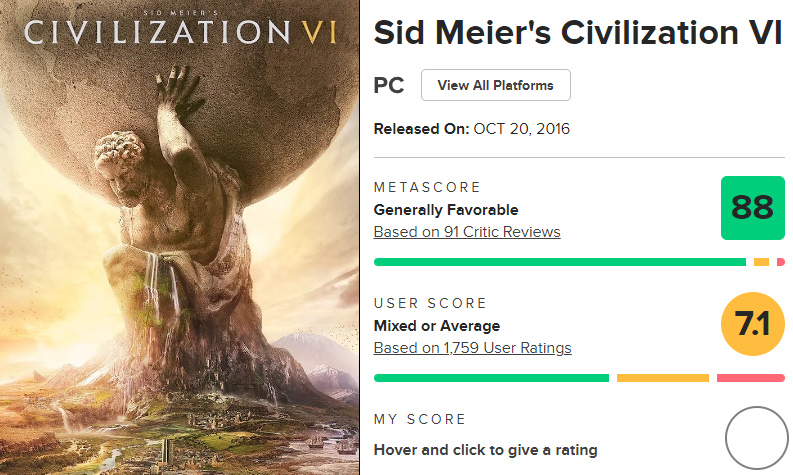Why can’t I honor our King, Civilization VI?
Civilization VI, the best-known strategy game and the latest installment in the Civilization series, was released in 2016. The game was a huge commercial success, featuring many new systems and developed to be the best in the series.
However, I can’t seem to enjoy this Civilization VI. I understand it’s a game with a great system, but I can’t enjoy it like I used to.
What separates me from the King of Strategy, whom I adored so much?
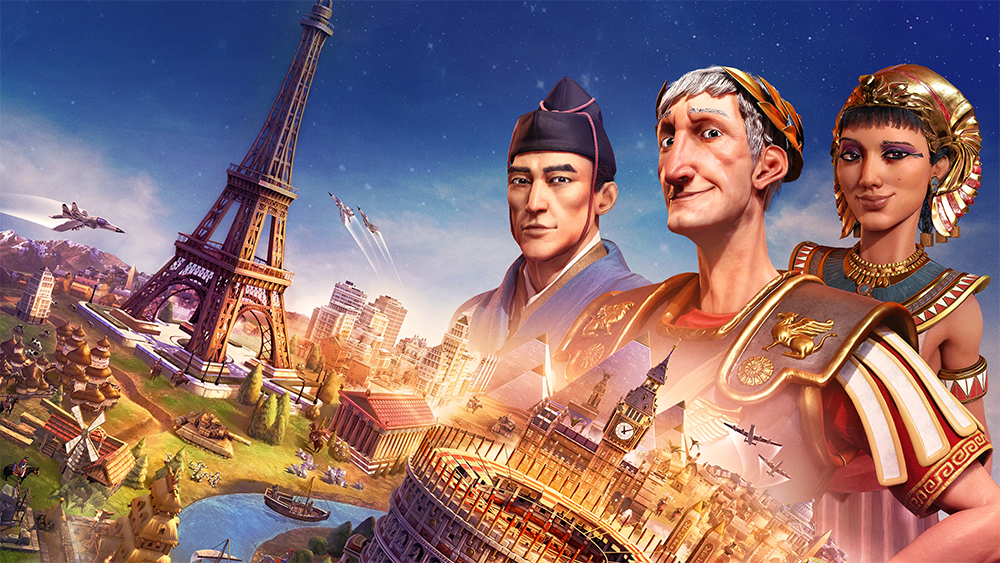
Hearts that don’t dance turns that don’t progress. Where has the magic gone?
Strategy games are a critical genre of video games.
It attempts to digitally construct a world that functions independently of the player’s presence. It is a bit of an exaggeration, but mankind’s dream is to create a new world.
The Civilization series is the King of strategy games. Even if you are not familiar with the strategy genre, you have probably at least heard of it.
Whenever a new game in the series was released, I would spend well over 1,000 hours playing it, forgetting about it day and night in a frenzy.
The discovery of new lands, the joy of discovering precious resources, and the technology tree full of hope for the future. I was caught in the quagmire of “one more turn,” absorbed by the ever-changing situation with each turn.
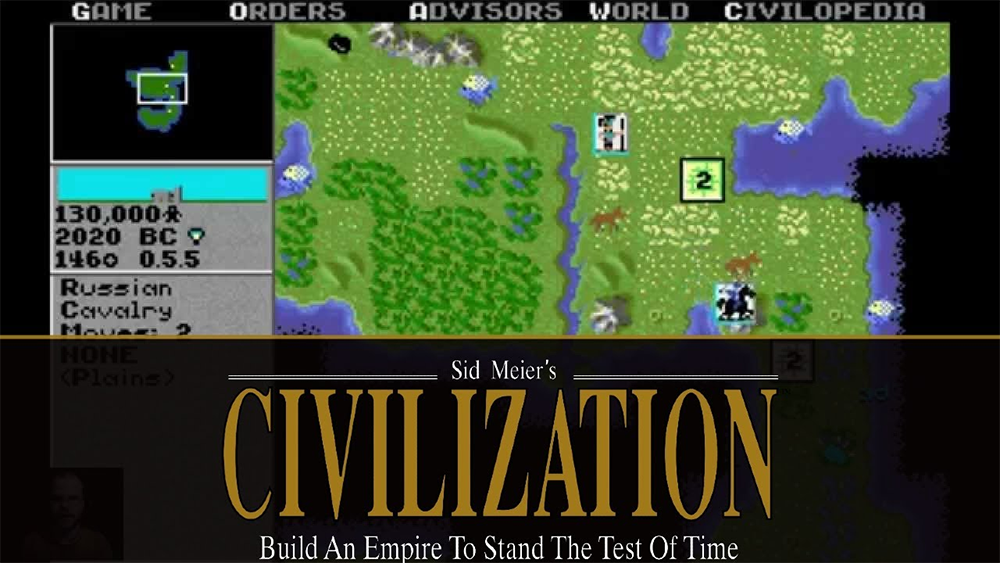
However, I can’t seem to enjoy Civilization VI, the latest in the series.
It can’t be, I thought, and after much trial and error, I managed to clock up 450 hours. In the end, however, I came to the incredible conclusion that VI is the most boring Civilization in the history of the series.
My Turn in Civilization VI has reached a standstill, and several years have passed.
Where has the magic gone?
The Metacritic score is 88 for META SCORE and 7.1 for USER SCORE.
An innovation that should have promised a bright future.
There is no doubt that Civilization VI is the most ambitious new system in the history of the series.
Of particular interest to me was the introduction of “City Unstacking”.
Up until Civilization V, all structures were built together in city hexes.
In Civilization VI, the system has been changed to one where you first build an industrial or religious ‘district’ somewhere within your sphere of influence and then build on top of that ‘district.’
Depending on where these ‘districts’ are built, they provide various bonuses, such as industrial power or science.
At first, I thought this was a great new system.
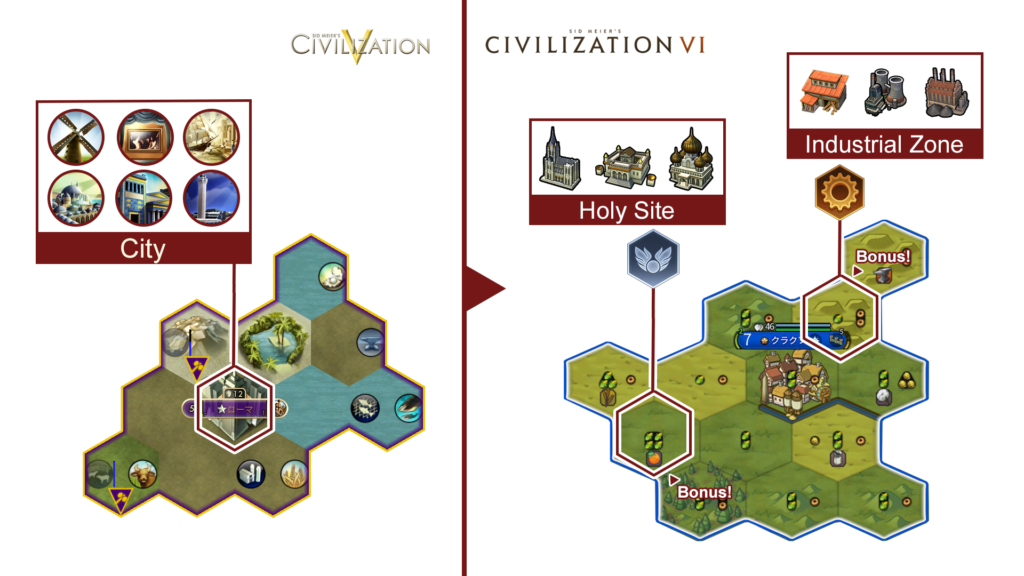
Civilization is a strategy game with little randomness after the game starts.
This is especially true since Civilization V, as the attack hit rate has been removed.
Of course, randomness is not entirely removed, but the effect is minimal.
So, players will be clearly aware of whether the strategy they have set up has worked.
If your Civilization was destroyed, your strategy was wrong. It was not due to a bad roll of the dice.
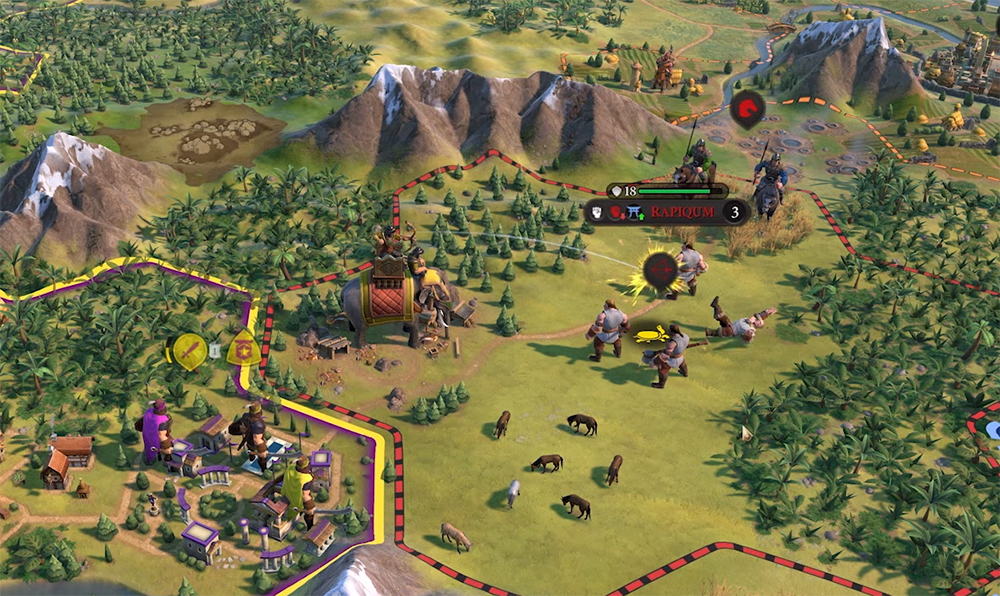
Although Civilization has little randomness after the game starts, there is a major random event at the start of the game.
Yes, the automatic generation of the map.
Starting a new game of Civilization begins with automatic map generation, where the AI determines the placement of terrain and resources according to an algorithm.
Naturally, the level of difficulty varies greatly depending on this initial placement.
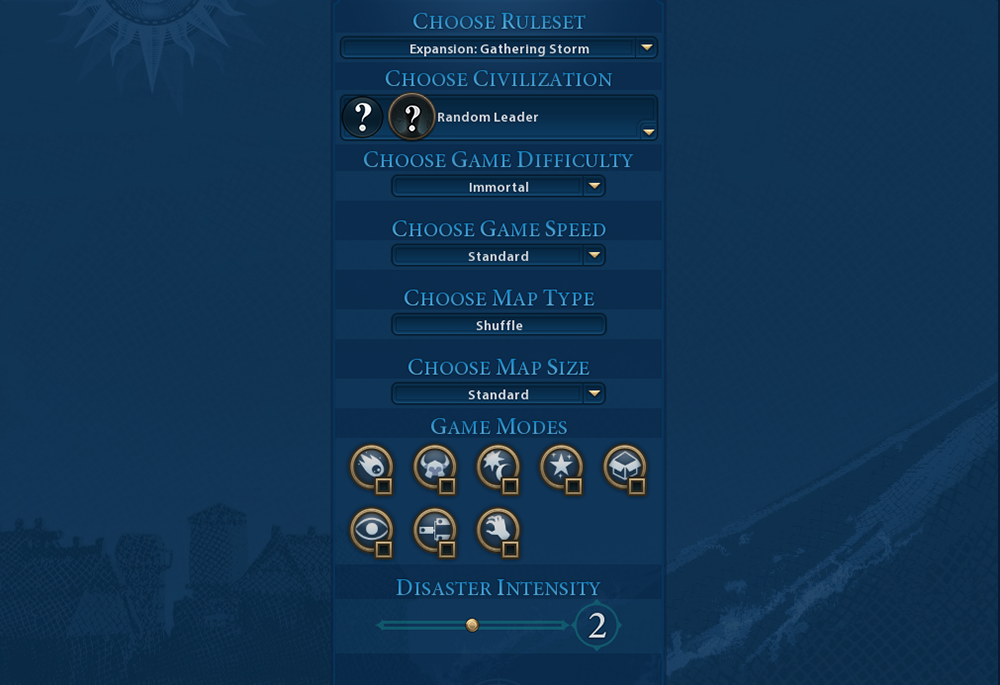
As mentioned above, bonuses are granted depending on the adjacent hexes of the construction site when building’ districts’ on the map in Civilization VI.
For example, an ‘Industrial Zone’ gets a +1 bonus to industrial capacity adjacent to a quarry and a +0.5 bonus adjacent to a lumber mill.
The terrain around the player’s city is, therefore, critical.
Compared to previous editions of Civilization, where all structures were placed together in city hexes, the impact of map generation at the start of the game is even more significant.
It was a fantastic find.
Uncertainty in Civilization exists almost exclusively in the map generation at the start of the game. The only way to avoid a fixed progression is to increase the influence of this map generation.
This creates a very different progression for each gameplay session, creating a varied game experience.
I thought this was going to be a great Civilization.
But…
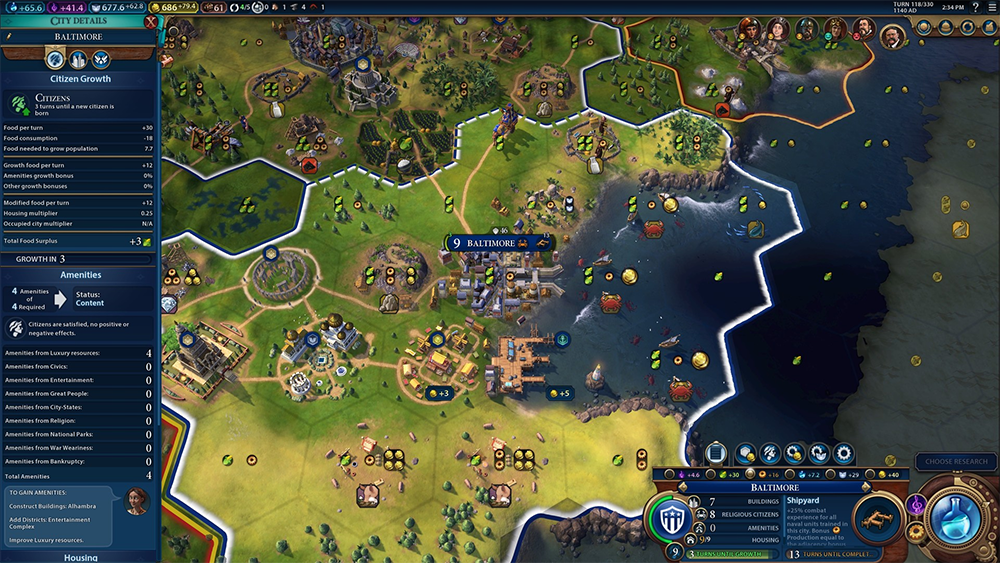
What gets washed away in the flood of numbers?
However, my excitement quickly cooled as I went through a series of trial-and-error attempts to understand this district system.
The holy site must be built near the mountains and forests.
Iron is there, so the industrial zone should be built next to it. No, they will make the dam there, so we could create next to it.
But I would put the commercial hub next to the river to get the bonus…
????
This is like a puzzle game.
And it is not just about the district system. City-states, diplomacy, trade routes—everything in Civilization VI is filled with puzzles and numbers.
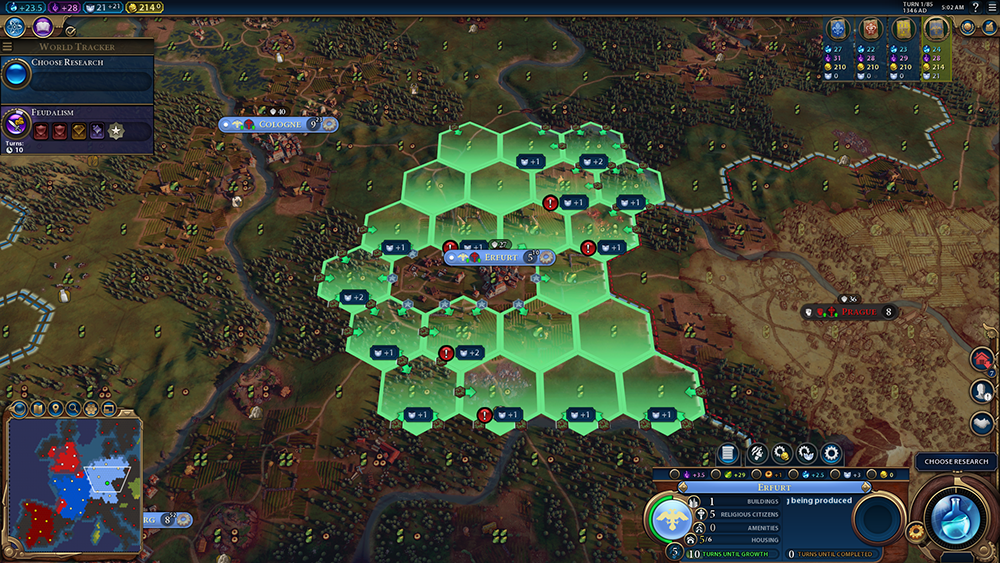
The intention is understandable.
In other words, they want to clarify cause and effect.
Why is the production capacity of this town 20 and not 21?
Why is the total agricultural production of this city -2 in deficit?
They ensure that the causes of the game’s events are well explained and that the player can react to them.
That is really great.
As with previous Civilization games, it’s honest game design.
However, Civilization VI introduced many complex new systems, resulting in too many numbers.
+1, -2, +4, +6, -1, -5, …
The flood of numbers washed away what was essential to Civilization.
Naked game mechanics.
The romance of human civilization is about to disappear over the horizon.
Civilization is a strategy game that aims to win through precise strategy. Still, it is also a story that traces the history of human civilization.
The lyrical poetry of a civilization that begins as a small settlement grows through discovery, and finally spreads out into the sea of stars is the driving force that drives the player.
The game’s main theme, Sogno di Volare, by Christopher Tin, one of the world’s most potent composers, celebrates this romance.
However, Civilization VI reveals too much of the game mechanics and causality, as if everything is explained with numbers and rationality.
Revealing the mechanics is essential to give the player control over the gameplay. However, showing too much can lead to losing what was initially intended to expire.
Sunsets can be explained by Rayleigh scattering, caused by collisions between photons and air molecules.
However, explaining this does not mean that the beauty of the sunset is conveyed.
Unlike Civilization VI, some strategy games have achieved great gameplay by revealing little about the mechanics and even less about cause and effect.
It is Balance of Power, created by Chris Crawford in 1985.
The game’s theme is the Cold War between the USA and the USSR. The player controls either the United States of America or the Soviet Union and must gain more prestige (score) than his opponent over an eight-year period from 1986 to 1994.
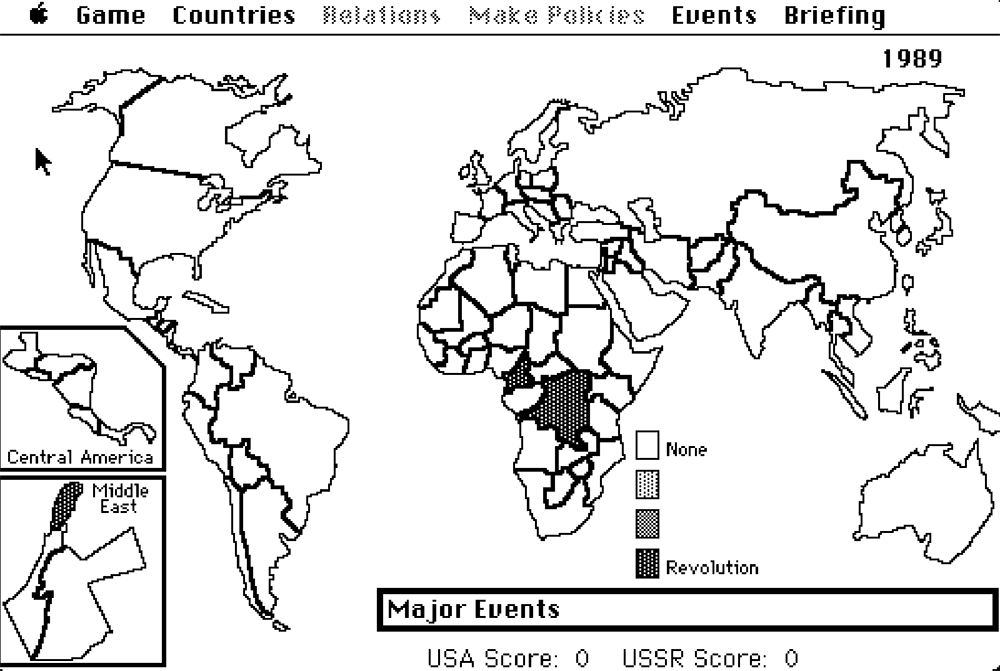
In this game, military tensions (DEFCON) arise between the US and the USSR when one side intervenes in the other’s sphere of influence. The representation of the last-minute bargaining that develops there is excellent.
The screen only shows the prestige (score) you will lose if you back down, a summary of the number of troops sent by the US and the Soviet Union, and a brief message from your advisor.
There is very little information to determine whether the other side will back down at this point, whether the tension level will increase further, or whether they will suddenly release nuclear missiles.
The game is over with no winner if a nuclear missile is launched.
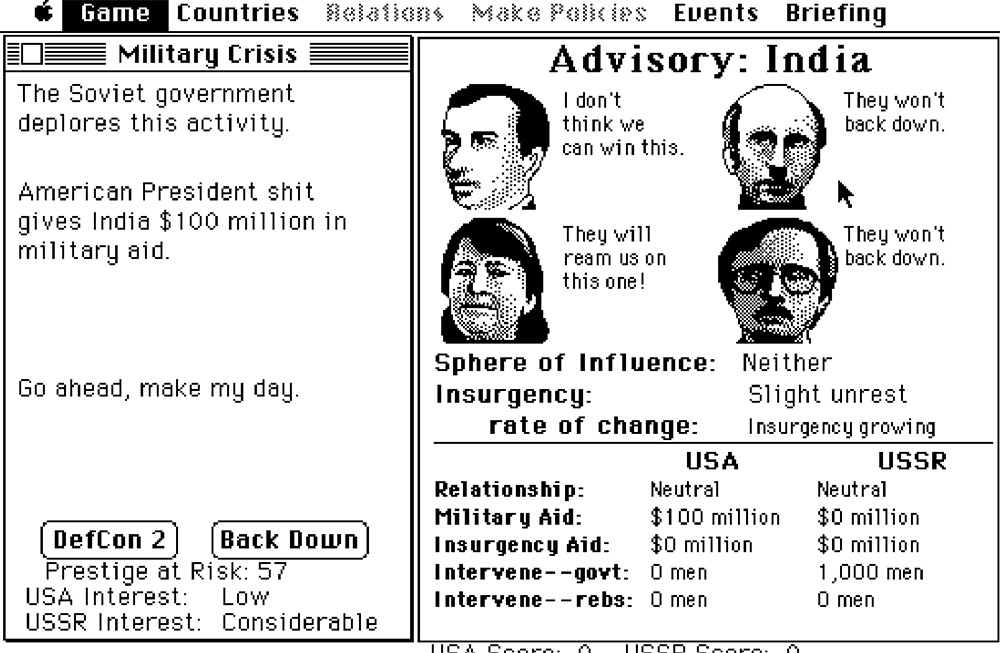
You may think this is unfair. That’s because we don’t know the cause and effect.
What this game represents, however, is the fear of negotiating for the world’s survival with an opponent who has a different ideology and does not know what they think or will do.
Balance of Power provides detailed data for every country in the world. However, it does not explain how this affects the game’s outcome.
Instead, the game expresses the tensions of the Cold War by not revealing too much about the mechanics and the cause-and-effect relationships of the events in the game.
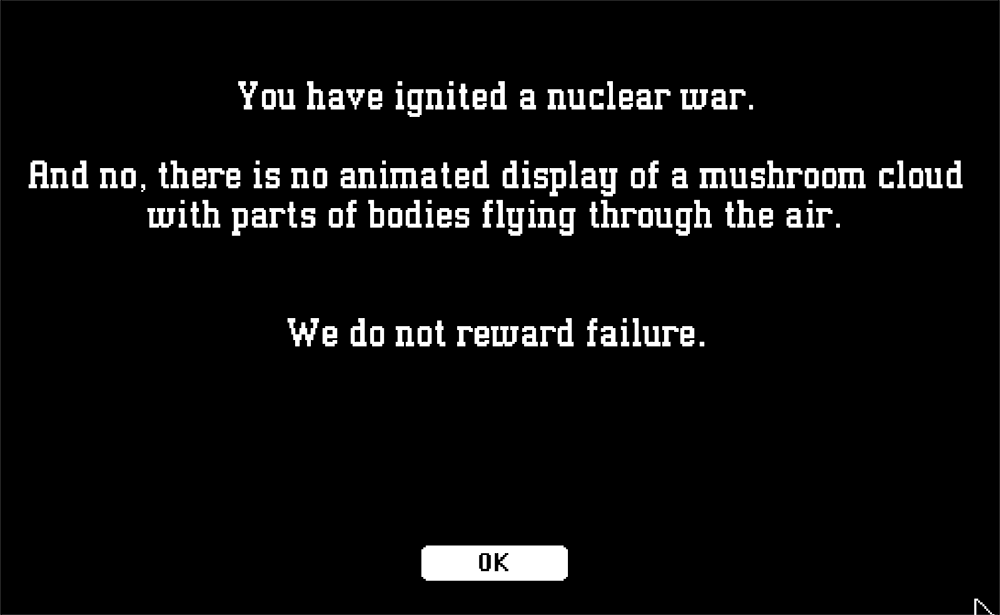
Of course, Civilization and Balance of Power cannot be compared across the board, as they are entirely different games.
However, Balance of Power creates the gaming experience that the author intended by not revealing the mechanics. On the other hand, I do not believe that Civilization VI‘s bare mechanics contribute to portraying human Civilization‘s progress and hopes for the future.
People have imagination. Showing everything is not always the best.
I think Civilization VI has made a mistake distinguishing between what should be shown and what should not.
In case you missed it, the 1990 version of Balance of Power is available for free at the Internet Archive.
It is an indispensable masterpiece in the history of computer games.
https://archive.org/details/BalanceOfPower2Macintosh
I am trapped in a cage of optimal solutions.
The large numbers shown by Civilization VI also deprive players of the pleasure of creative play.
Of course, players need information to realize their idea of gameplay.
Especially in strategy games, they must be able to infer the consequences of their decisions and choices.
However, Civilization VI strips the game system overexposed. As a result, every gameplay becomes a process of approaching an optimal solution.
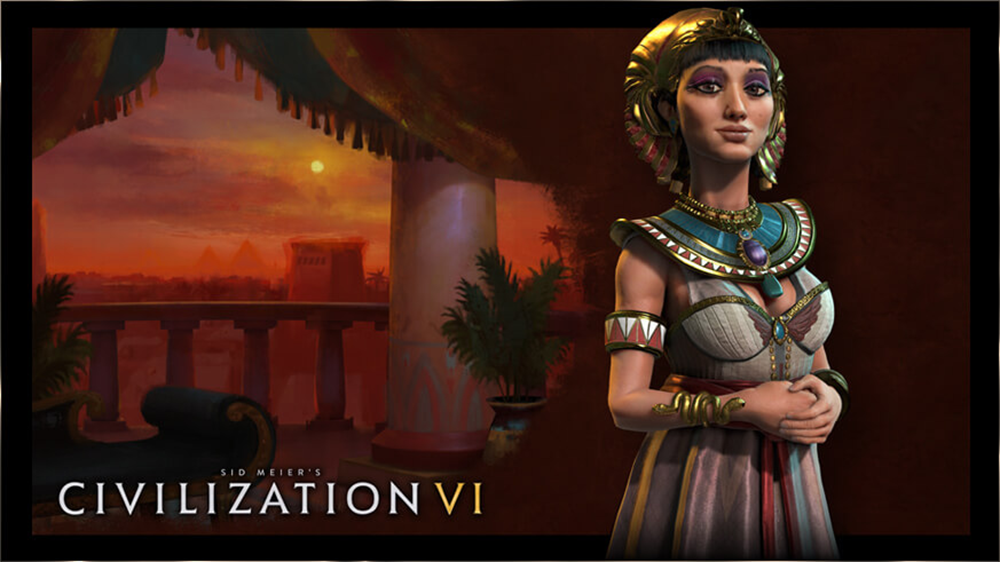
The joy of strategy games is not finding the single best solution.
It is about the success of your strategy or using your wits to escape a dangerous situation.
For this to happen, players need to be able to believe that the achievements they make in the game are due to their efforts.
Even if it is an illusion.
When you win a game, it is essential to exclaim with pleasure: “I am a genius!” when he wins the game.
However, Civilization VI reveals too much about the game system. The player is, therefore, forced to realize that he or she is merely a resident in the system’s cage.
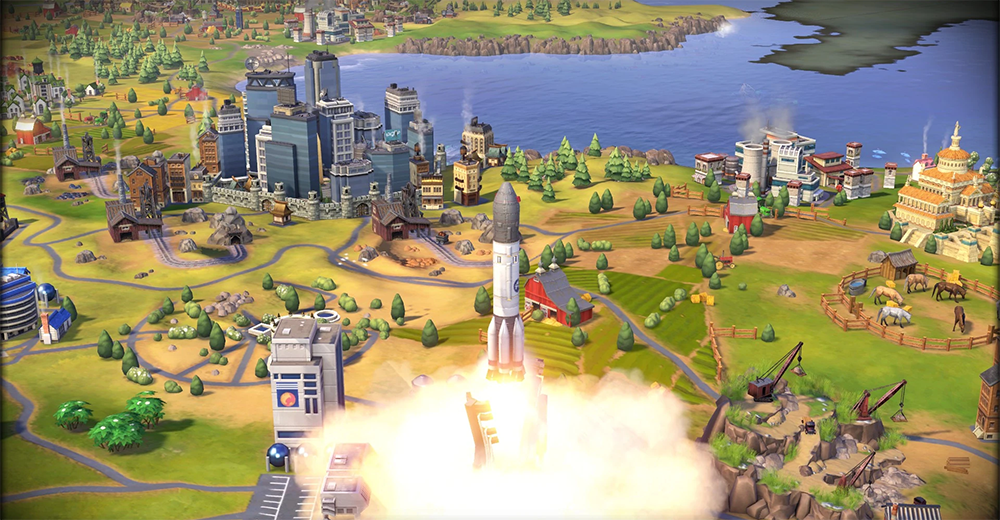
In the masterpiece of stealth gaming, Hitman, players can assassinate their targets in many ways.
You can assassinate them quietly, out of sight and out of mind. You can make it look like an accidental death, or you can go in head-on and open fire.
You can even kill them in a joke-like manner, for example, by planting a bomb in a golf ball or running them over with a lawnmower.
So, do players adopt those assassination methods because they are the best solution?
No, they are not. Players do so because it is cool and exciting.
And that is precisely what makes Hitman so appealing.
Of course, even its location is within the cage of the game system. But to the player, it seems like an endless playground. This is because the optimal solution in the game is not defined.
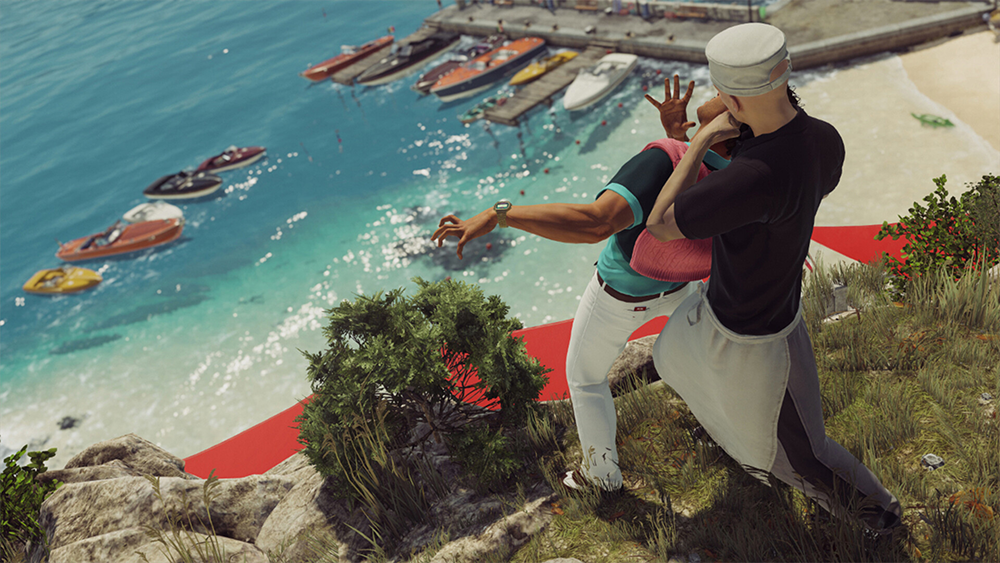
In other words, the gameplay is self-expression and self-realization.
The player must realize that this was his or her own experience.
Even if this is only within the game system’s expectations, the game should ensure that the player is unaware of it.
Civilization VI shows numbers and tells the player the cause and effect of the gameplay. It does this so that players can express their ideal gameplay.
Ironically, this has caused players to lose their romance and joy.
An honest person is not necessarily an attractive person.
In the end, will war solve everything?
I also want to mention another point many players have pointed out.
That is the problem that war solves everything.
In addition to victory by conquering territory in war, Civilization has other victory conditions such as cultural, religious, and chemical victories.
In Civilization VI, however, the best way to fulfill these victory conditions is to weaken the civilization that leads you in culture, religion, or science through war. Therefore, whether you are aiming for a conquest victory or any other victory condition, what you must do is almost the same.
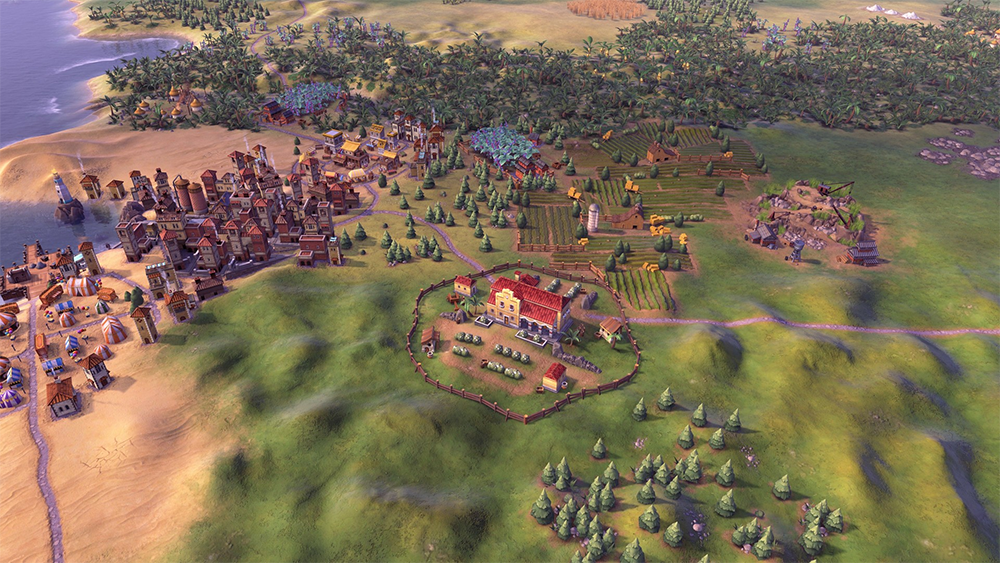
Of course, this is not the case in all situations. However, whatever the victory objective, there is no doubt that winning the war is highly effective. That is far too effective.
Simply put, the risks of starting a war are too small, and the rewards too great.
And two broad factors contribute to this.
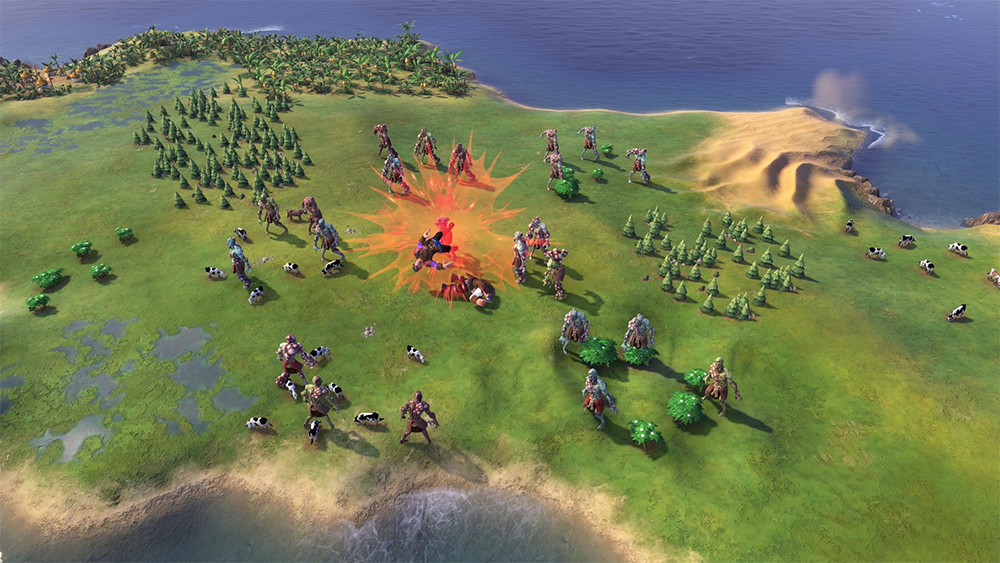
The reinstatement of war and the system’s increasing complexity are troubling AI.
One factor is simply that AI is vulnerable to war.
This makes the risk of starting a war more minor.
This problem was pointed out at the game’s launch, but repeated updates have improved it considerably. I would give the game a qualifying score regarding AI movement immediately after the war started and with full force.
However, even today, the following vulnerabilities emerge once the equilibrium starts to break down.
(i) AI cannot rebuild once a front line has been destroyed.
(ii) The AI cannot successfully capture the player’s cities.
An analysis of the specific factors is lengthy and will be omitted. However, the AI’s almost common pattern of losing is successively putting units on the front line to replenish missing forces, only to have them destroyed individually.
This is speculative, but the war AI routines have not been updated well from Civilization IV, where mass operations were effective.
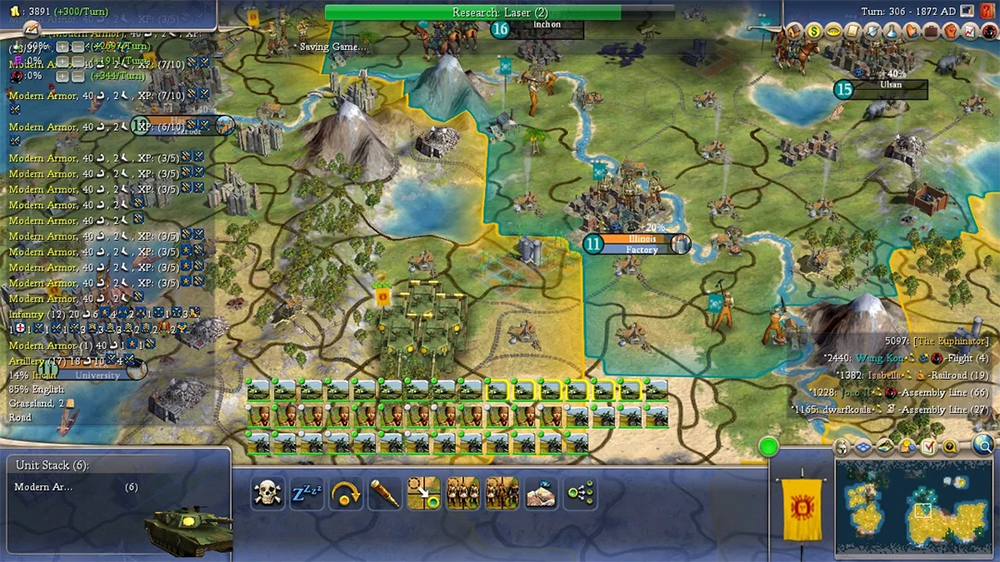
The year 2005 was a central historical turning point for strategy games.
The year saw the release of two masterpieces: Civilization IV and Hearts of Iron 2. While both culminated in the fun of micromanaging hundreds of units, it showed no more room for further development.
Since then, both series have attempted a significant change of direction.
Hearts of Iron found a new way to simplify management by grouping large units. In contrast, Civilization adopted the straightforward approach of simply reducing the number of units.
Thus, Civilization V appeared in 2010. In V, war itself was curtailed by increasing the penalties for territorial expansion and dramatically reducing the number of combat units.
However, war is still an essential element of strategy games.
Civilization VI attempted to bring back the catharsis of war. Unit numbers have increased, and unit stacking, discontinued in V, has been conditionally restored. The number of troops was also dramatically increased.
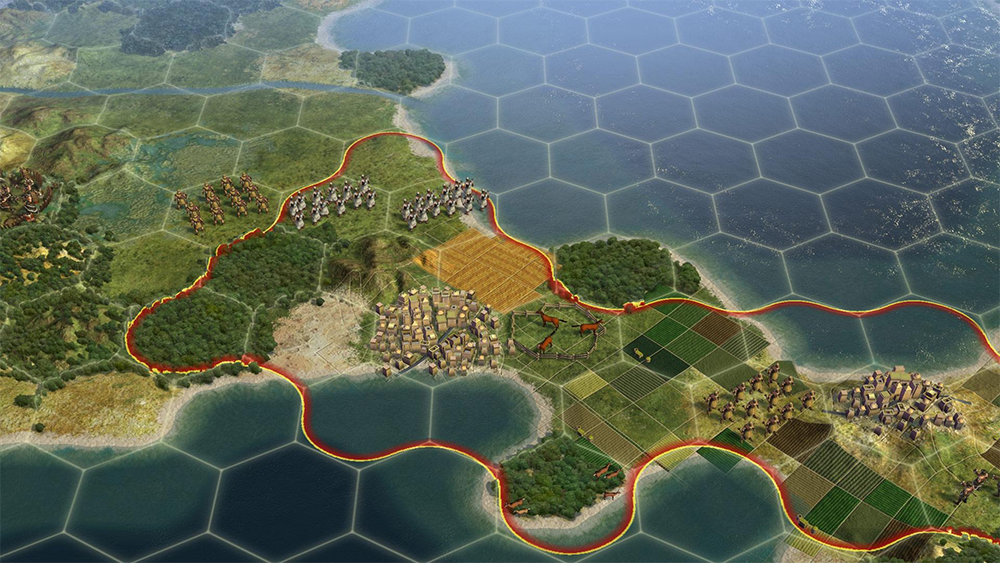
Ironically, however, the reinstatement of warfare has resulted in Civilization VI‘s AI being exposed for its immaturity.
It may be too harsh to describe it as ‘immature.’
Perhaps Firaxis Games is fighting the good fight. However, the AI cannot cope with the increasingly complex game system, including the introduction of new systems and the increase in the number of troops.
Sequentially deploying units to the front line is effective in games such as Civilization IV, which is based on operating large numbers of units. Still, in VI, it does not seem to work very well.
Players often sacked AI reinforcement units when they arrived on a half-destroyed front line.
This is also the case when the AI attacks the player’s cities. When units are lost in battle and the balance between siege and conventional weapons is upset, the AI’s forces often collapse helplessly.
The ideal is for AI to retrench once the front line collapses and build a second front, just like in real wars and football.
However, this is a difficult task, as Civilization, like other wargames, would have used Influence Maps to build battlefronts.
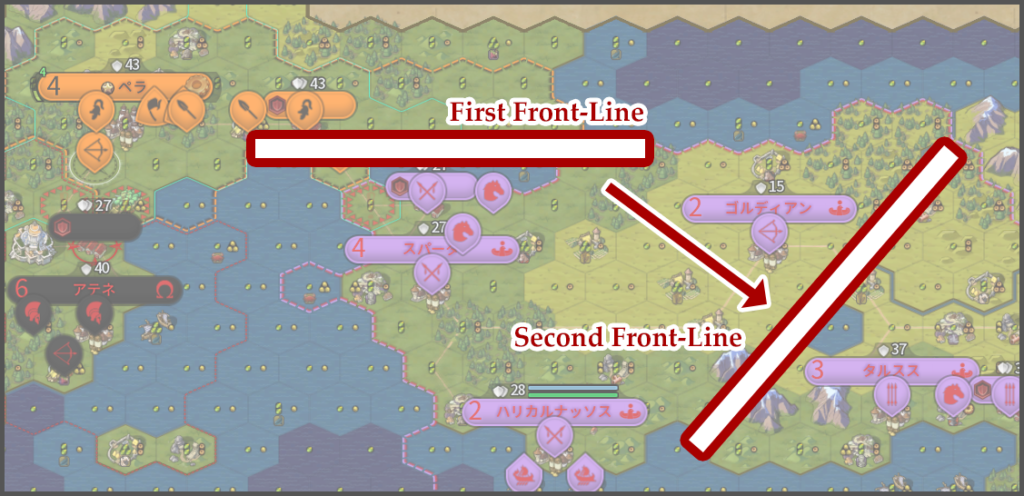
Again, sequential deployment worked well if the game was based on mass operations, such as Civilization IV. However, its effectiveness is limited in VI.
Nevertheless, there will no longer be an option to return to the style of Civilization IV.
If so, a radical evolution of war AI is required. Will the next installment of Civilization live up to these expectations?
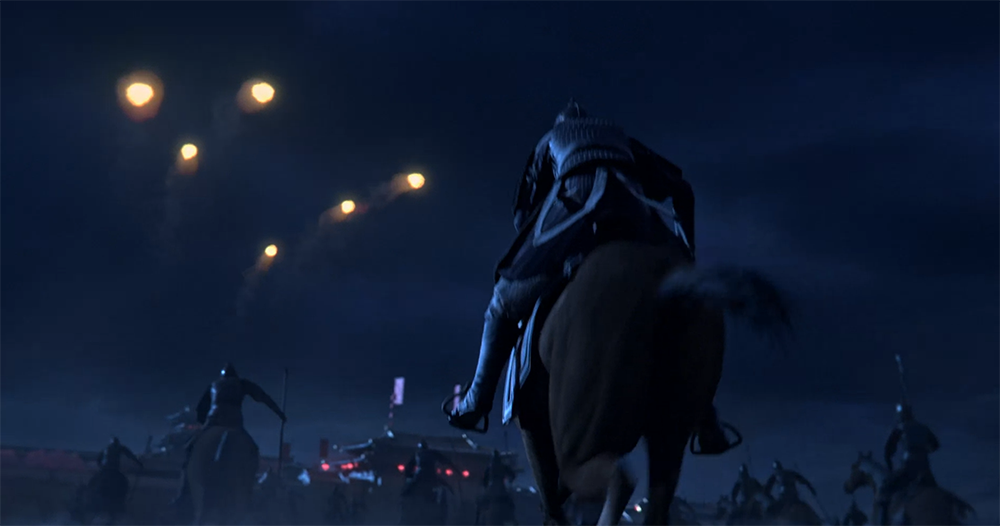
Cities increase. Positive feedback is unstoppable.
The risk of starting a war is reduced because the AI cannot successfully prosecute the war. On the other hand, the reduction of territorial expansion penalties makes the payback from war too great.
As mentioned above, Civilization V discouraged territorial expansion = war by increasing the penalty for adding cities.
Players had to decide whether or not there was a real payback for going to war and building cities.
However, in VI, the penalty for territorial expansion has been dramatically reduced, so there is now virtually no reason not to increase cities or start a war.
Taking cities away from enemies increases the production, cultural, religious, and scientific power of player civilizations while reducing the power of AI civilizations. Furthermore, positive feedback will no longer stop if the cost of maintaining cities decreases.
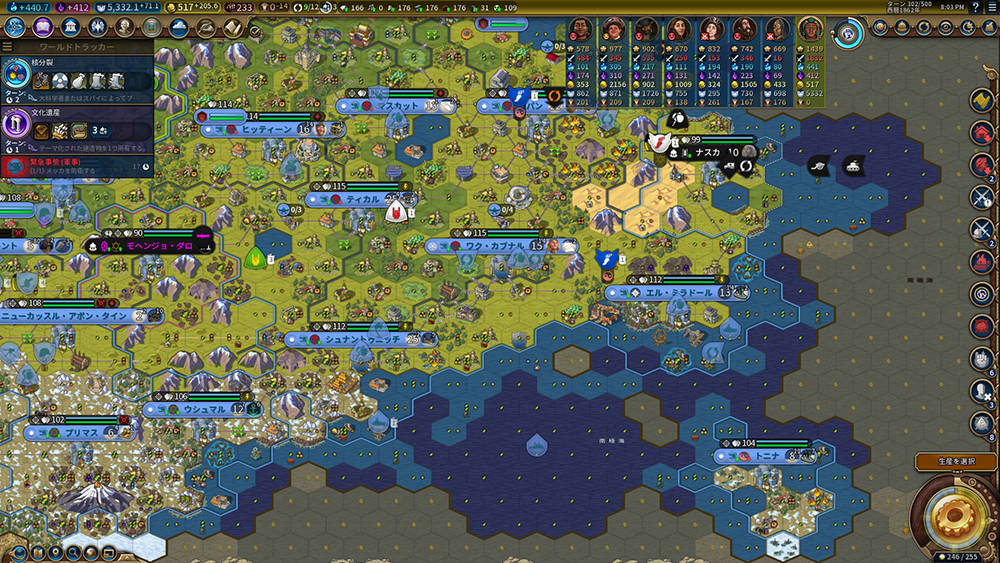
It was no good to have a system in which even religious and cultural power was proportional to the number of cities.
This inevitably leads to a broadly similar game flow, no matter what victory conditions the player aims for.
At the very least, the game would have been more diverse in its development if it had been balanced in favor of fewer cities to achieve cultural and religious victories.
Can you accept the dice that God rolls?
Thus, in Civilization VI, the game is often decided by the time it moves from the medieval to the modern era. Once the player’s advantage is established, it is almost impossible to reverse it. This is because, as mentioned above, there is little randomness in the Civilization once the game starts.
And it highlights a perennial issue for the series.
The question is how to deal with the development of a game that turns into a digestive game after the outcome is almost decided.
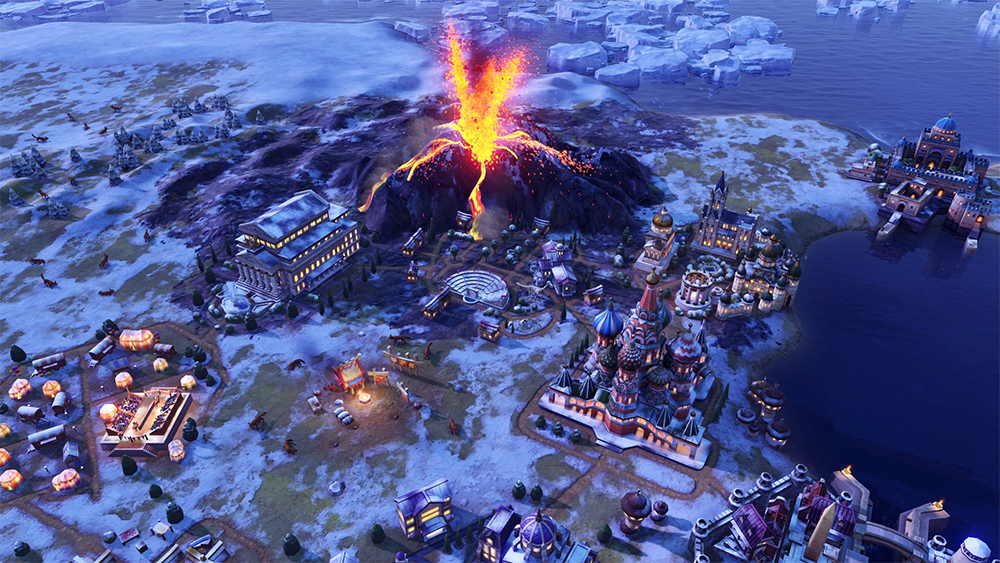
This is a significant problem because the game systems in the modern era of the game, which we have taken the trouble to create, make little sense.
Civilization VI also has exciting systems, such as the United Nations and environmental issues. Still, these rarely make sense in the game’s context.
This is because the game is already won when you get there.
To make matters worse, the system of Civilization becomes more complex as time goes on.
The player’s victory is decided, yet they are forced to repeat the same complicated process repeatedly.
O king, this is torture.
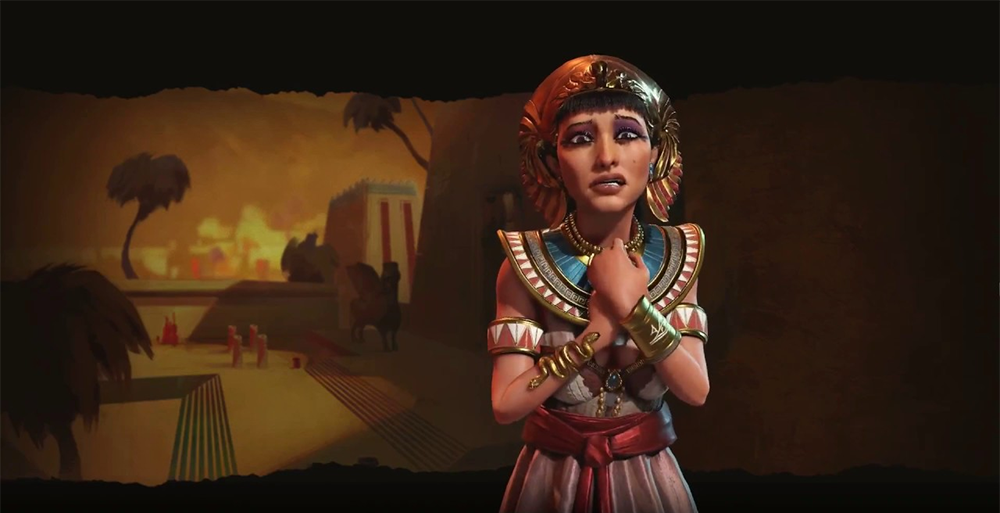
With little randomness and a clear game system, Civilization can easily see what is ahead.
The player’s empire does not collapse overnight, as in Crusader Kings.
That is why when the game is won, it proves that the player’s strategy worked.
That is why, when the game is lost, the player can consider revising his strategy.
But that is why it creates boredom.
This can be seen as a matter of beliefs about what a ‘Civilization‘ game should be.
Suppose, for example, that, although somewhat extreme, the game included a mechanic whereby a great power would suddenly decline due to divine mischief.
Just as the Mongol Empire disappeared into the steppe horizon, just as the Spanish sun sank into the Atlantic horizon, just as the British Empire gave way to a healthy and ambitious youth, Let’s say that the rise and fall of an uncontrollable nation happens in Civilization.
This would make the game unpredictable, and the tension would last until the end of the game.
But will players of Civilization accept this?
Can you accept that your civilization is in decline for reasons beyond your control?
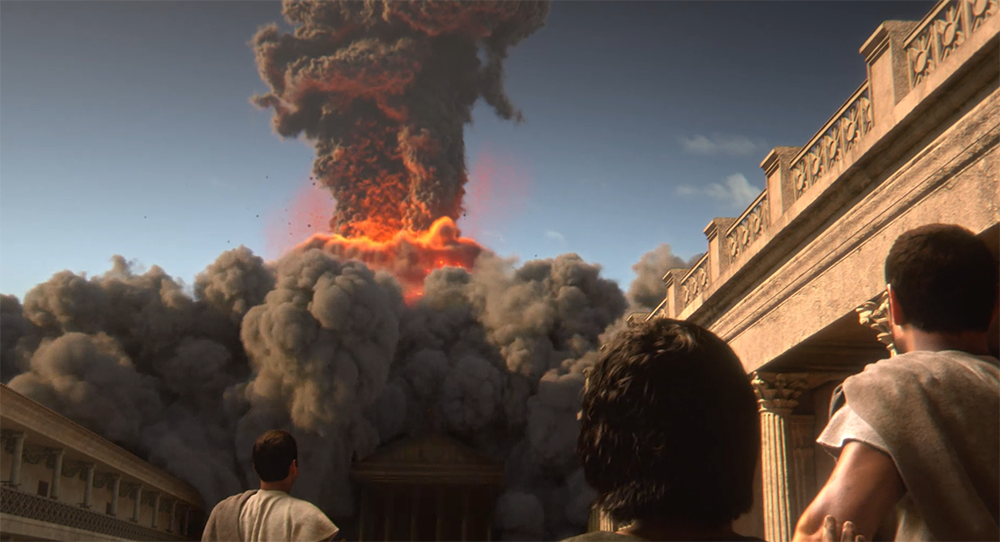
Civilization VI incorporates similar ideas.
These are the ‘Dark Ages’ and ‘Natural Disasters’.
However, these systems are only very halfway effective because they are controllable by the player.
Civilization inevitably fails to abandon its long-held policies.
In games, the handling of ‘luck’ is a susceptible issue.
This is because the player cannot control luck.
Especially in strategy games, the player’s strategy becomes meaningless if the situation changes too much by luck.
However, if Civilization is to eliminate the end-game digestion game, introducing more dramatic randomness, besides map generation at the start, seems inevitable.
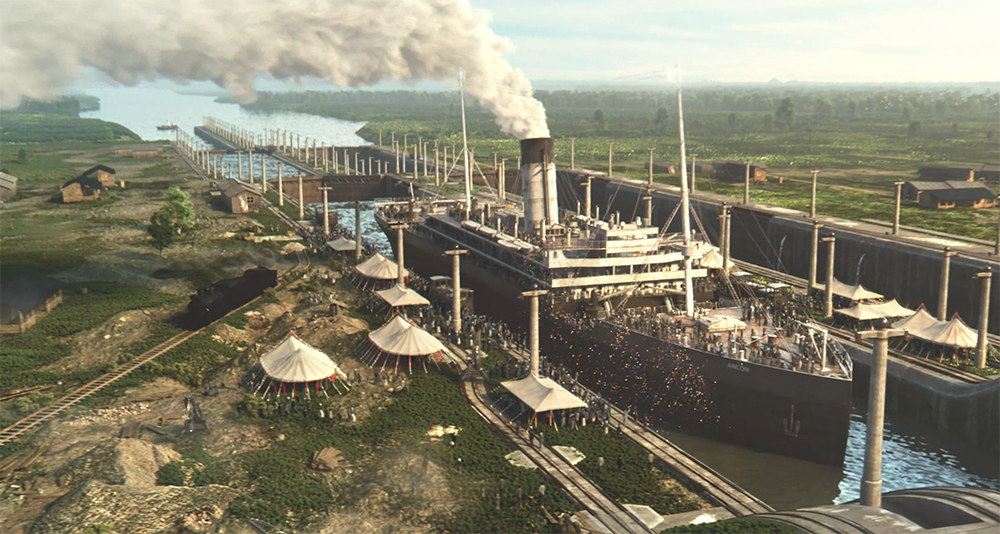
A new Civilization game is already being developed.
It will be interesting to see how the new game will solve this long-standing problem.
Yet I am still your subject of the King.
Because you have shown me the future.
I cannot love ‘Civilization VI.’
Civilization VI appears to be the most boring entry in the series.
But even so, I will never stop being a subject of the King.
There have been some rising stars in 4X strategy, such as Old World and Humankind, but for me, Civilization is still the King of Strategy.

The future of humanity, as envisioned by video games, is disastrous.
The world is being cruelly destroyed. Humanity has been reduced to the utmost limits, and civilizations lost. The footsteps of zombies and creatures puncture the earth where nuclear arrows have been fired. Even if civilization has developed, it is a dystopia controlled by evil AIs and dictators.
It is indeed disastrous.
Of course, I know.
As a setting for the game, they have to.
But isn’t it too lonely at any price that video games, which have developed alongside technology, can only depict where technology and humanity are headed this way?
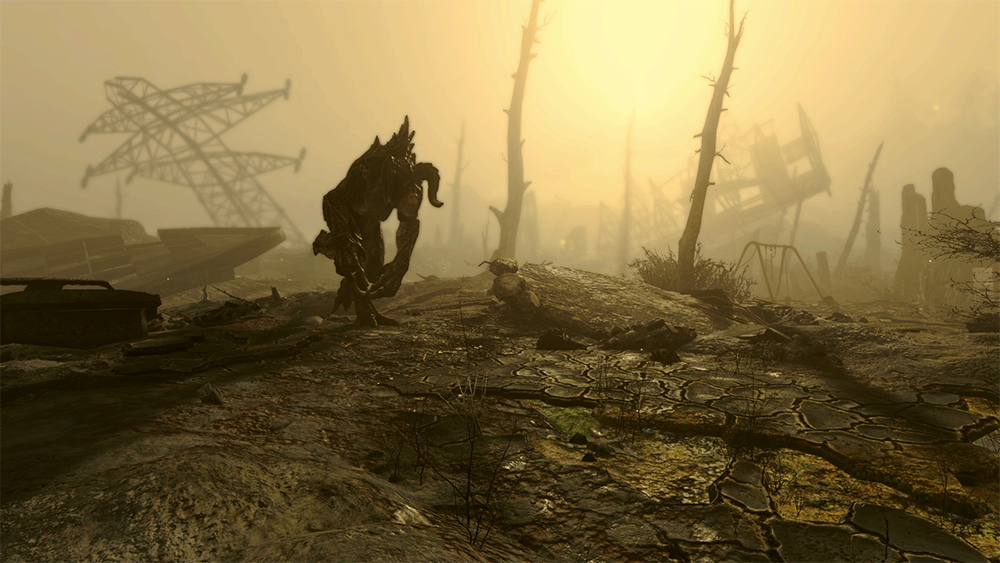
Civilization tells the glorious story of the way humanity has come and the way it is going.
Scared by nature and darkness, but the dawn of a new day to break through the land.
The winds of courage push the sails of a new continent.
The edge of the castle is reflected in the never-ending ambition.
A magic that could be mistaken for the hand of God, freeing people from dreams of sickness, and an electronic spider thread that is about to cover the world with information.
Through the curtains of the sky, which continued to repel the spears of the universe, one may eventually walk into the feet of the gods.
Civilization is fundamentally optimistic about the future.
With every turn, humanity develops.
And let’s look back at the One More Turn that mankind has accumulated over the years. The story depicted in Civilization is what the future of humanity deserves.
As the flagship of video games, the poster child of technology, nothing could be more appropriate.
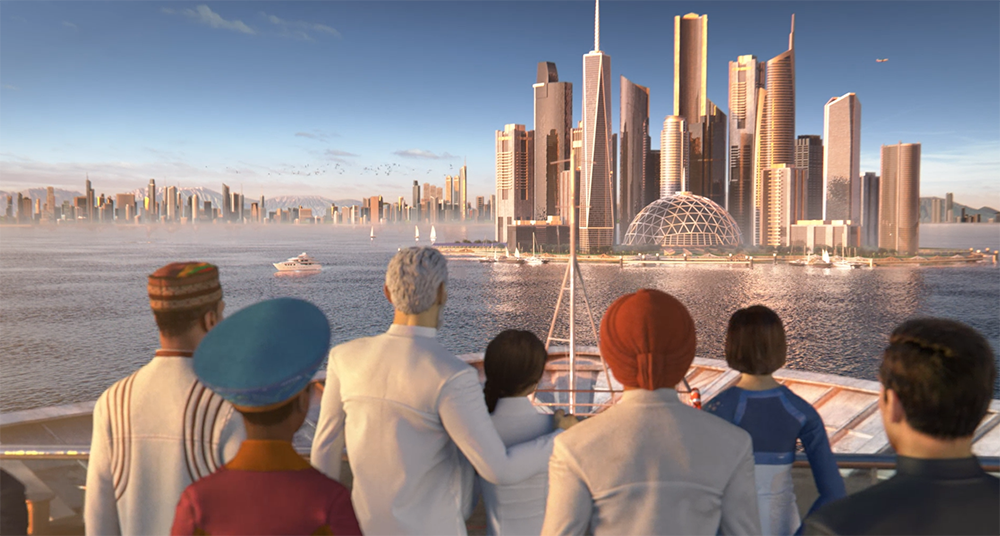
That is why, as a subject of the King, I await the return of the King with all my heart.
Una volta che avrai spiccato il volo,
Allora deciderai
Sguardo verso il ciel saprai:
Lì a casa il cuore sentirai.
L’uomo verrà portato dalla sua creazione
Come gli uccelli, verso il cielo…
Riempendo l’universo di stupore e gloria.
Gloria! Gloria!
Related Articles
The story of one woman who shines by not showing or revealing too much information.
シヴィライゼーション VI
steam : https://store.steampowered.com/app/289070/Sid_Meiers_Civilization_VI/
epic : https://store.epicgames.com/en/p/sid-meiers-civilization-vi
Apple Store : https://apps.apple.com/us/app/sid-meiers-civilization-vi/id1235863443
Switch : https://www.nintendo.com/us/store/products/sid-meiers-civilization-vi-switch/
Play Station : https://store.playstation.com/en-us/product/UP1001-CUSA15322_00-CIV6BASE00000000
Xbox : https://www.xbox.com/en-US/games/store/vi/9NQNXPRM1BD2
Google Play : https://play.google.com/store/apps/details?id=com.aspyr.civvi&hl=en_US
